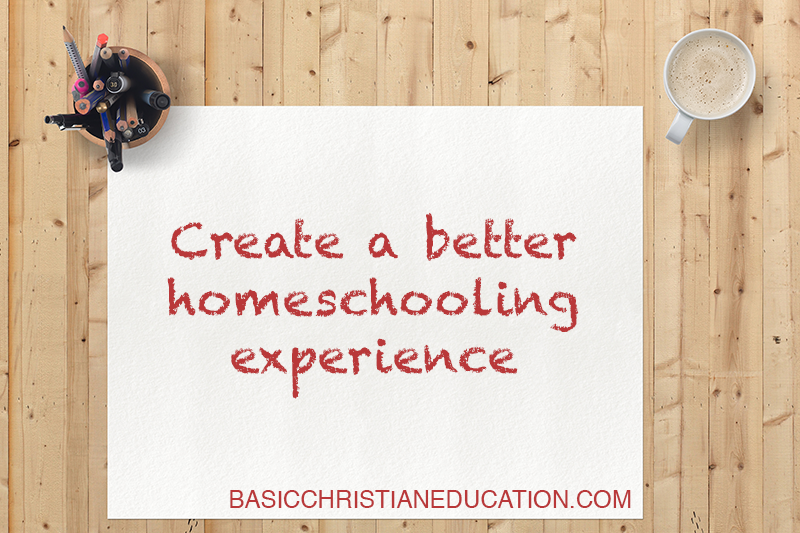Tips for a better homeschooling experience
Are you just starting out on your homeschooling adventure? Don’t let details overwhelm you! Setting up a foundation for learning will lay the groundwork for confident learning for years to come. Here are a few tips to keep in mind as you begin to design your child’s educational experience.
Body Basics
First things first. It’s hard to learn (or teach) if you’re tired, stressed, or distracted. Before starting a curriculum, put some healthy habits into place, like adhering to a consistent sleeping and eating schedule. Take time for nutritious snacks throughout the day, and include breaks for physical exercise. Your brain is 75% water so drink plenty of water. A well-hydrated brain will function much better.
You will also want to maintain regular appointments and checkups to ensure that your child is always ready to work to their full potential. Many students, for example, harbor visual problems that go undetected by a 20-20 eye exam. These visual problems can hamper or prevent a student’s academic progress. Have your student examined by a Developmental Vision Specialist (sometimes known as a Behavioral Vision Specialist*) if they are struggling with reading or completing their work.
* resource www.oepf.org (see find an optometrist)
www.visionhelp.org/category/vision-and-reading
www.basicchristianeducation.com/blog/2015/08/18/examining-vision
www.basicchristaneducation.com/blog/2015/01/17/vision-beyond-2020
Daily Goals, Life Skills
As a homeschooler, you are training your student for life both now and hereafter. When students from the first grade on are taught to set daily PACE goals, they learn to be responsible and experience the joy of completing a task. Daily goal setting and accomplishment can be used to motivate students and avoids the question of “When am I done?” Care should be taken to set a reasonable number of pages per day so that the student makes progress toward completing the curriculum while also enjoying the process. Remember, the beauty of homeschooling is focusing on mastering the material rather than just “getting it done.” By helping your child set daily, realistic goals, you will be setting them on a path toward discipline and confidence.
Reading & Succeeding
As a homeschooler, you value reading as the foundation for faith and learning. Avid readers develop critical thinking, creativity, and empathy as they gather a storehouse of knowledge from a variety of topics. That’s why it’s important to begin good habits early:
- Listen to younger students (1st through 3rd grade) read aloud. Not only does reading aloud strengthen skills but signals to you, the teacher, if your child is having trouble reading fluently, understanding punctuation, or comprehending the content.
- Encourage beginning readers to use a piece of construction paper or a bookmark to show themselves where they are on a page. Eventually, they will learn to go to the next line of text without a cue.
- Help your student build vocabulary by having them copy words (such as those from the Goal page) on a daily basis. The student should say the word, spell it aloud as they write each letter, say the word again when finished and don't forget to tell what it means. Each word can be put on an individual 3x5 card for study. Watch your child’s reading skills and confidence grow as their word bank increases!
For more support with curriculum and homeschooling, request our program catalog!


